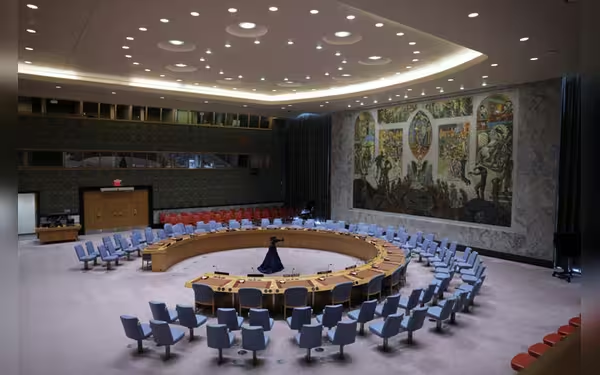Thursday, November 7, 2024 05:31 AM
Pakistan Urges UN to Prevent Outer Space Weaponization
- Pakistan warns of devastating fallout from space conflicts.
- Call for comprehensive measures against arms race in space.
- Emphasis on international cooperation for space security.
 Image Credits: dailytimes_pk
Image Credits: dailytimes_pkPakistan urges the UN to halt outer space weaponization, warning of severe global consequences from potential conflicts.
In recent years, the topic of outer space has gained significant attention, not just for its exploration but also for the potential threats it poses. As nations increasingly rely on space for communication, navigation, and surveillance, the risk of conflict extending beyond our planet has become a pressing concern. The weaponization of outer space is no longer a distant worry; it is a reality that could have far-reaching consequences for all of humanity.
During a recent session at the United Nations, Pakistan's delegate, Gul Qaiser Sarwani, emphasized the urgent need to prevent an arms race in outer space. He warned that any conflict originating from or occurring in space “will not be confined to that realm.” This statement highlights a crucial point: the repercussions of such conflicts would affect not only nations with space capabilities but also those without. The interconnectedness of our world means that the fallout from space-related conflicts could ripple through all aspects of life.
As Sarwani pointed out, the risks associated with outer space have intensified. With modern warfare increasingly dependent on space-based assets, the potential for conflicts on Earth—whether on land, at sea, or in the air—to escalate into outer space is alarmingly real. The integration of missile defense systems with space technologies is undermining strategic stability, raising concerns at both global and regional levels.
Pakistan has consistently advocated for meaningful action to address these threats. Sarwani expressed disappointment over the lack of progress in international negotiations aimed at preventing an arms race in outer space, particularly under the framework of the Outer Space Treaty, which was established nearly sixty years ago. He noted that divisions among nations regarding space security have become more pronounced, complicating efforts to reach a consensus.
To tackle these challenges, Sarwani called for a more comprehensive approach that not only addresses the dual-use nature of space technologies but also the capabilities being developed for warfare in outer space. He reiterated Pakistan's commitment to advancing negotiations on a legally binding instrument to prevent an arms race, while also supporting non-legally binding measures like Transparency and Confidence-Building Measures (TCBMs).
The call for a holistic approach to space security is not just a diplomatic gesture; it is a necessary step to ensure that outer space remains a peaceful domain for future generations. As we stand on the brink of a new era in space exploration and utilization, it is imperative that nations come together to safeguard this vital frontier. The stakes are high, and the time for action is now. By fostering cooperation and dialogue, we can work towards a future where outer space is free from conflict, benefiting all of humanity.













